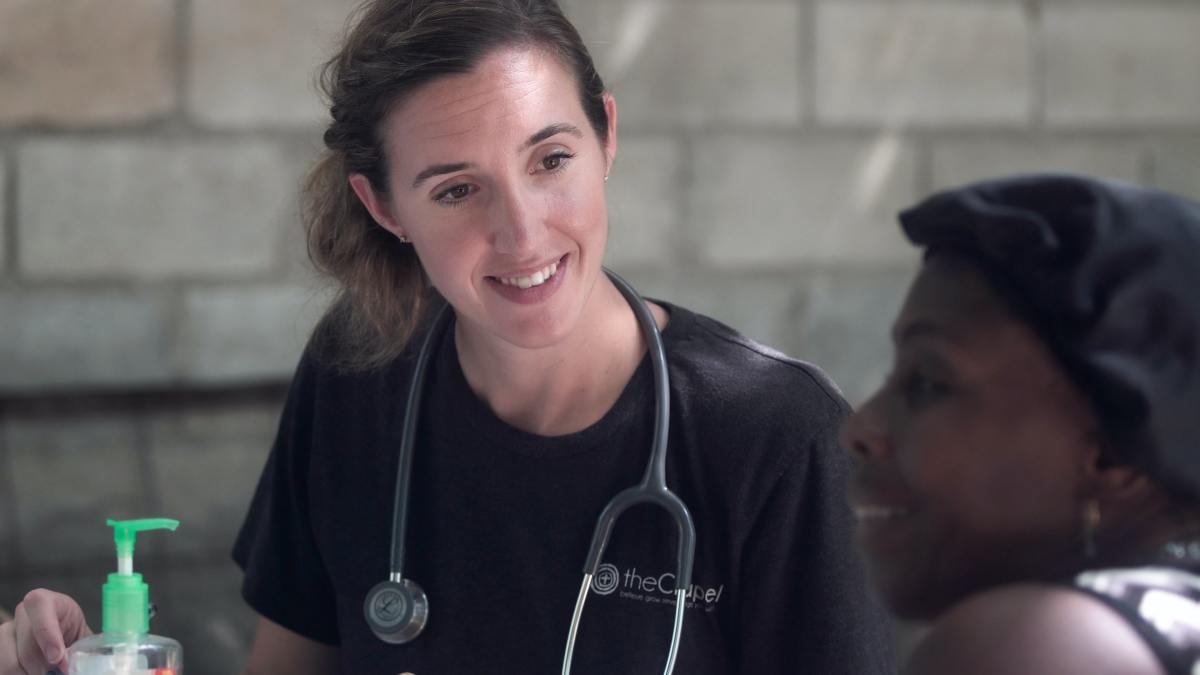
Steps to Become a Licensed Practical Nurse (LPN)
Licenced practical nurses (LPNs) deliver essential services to patients across [...]

Although it’s a place you wouldn’t wish upon anyone’s child–let alone your own–the neonatal intensive care unit (NICU) is an extraordinary place where medical miracles occur every day. NICUs perform critical care functions for premature infants as well as those with birth defects, infections, malformations, and other vulnerabilities.
The healthcare professionals who staff NICUs boast myriad specialties and educational backgrounds. Neonatologists, pediatricians, child life specialists, lactation consultants, and family support coordinators are just a few of the pediatric providers working there to ensure every child and their family receives extensive care.
Neonatal nurse practitioners (NNPs) number among these skilled, highly trained staff. Working directly with the neonatologist and/or pediatrician, NNPs possess specialized training needed to oversee patient care and perform some procedures.
This article reviews the steps to become a neonatal nurse practitioner. It also addresses:
Neonatal nurse practitioners serve as primary caregivers for newborn infants with high-risk conditions until they stabilize and move to a standard care unit. NNPs perform vital services for multiple patients each day. In addition to assessing newborns recently admitted to the NICU and diagnosing their illness or disease, NNPs also order diagnostic tests to get a clearer picture of the issue.
After making a diagnosis, NNPs develop treatment plans and perform procedures in consultation with physicians assigned to the patient. They also prescribe medications to help alleviate symptoms or counter infections. They may call in other specialists, such as neonatal pulmonologists, neurologists, cardiologists, or gastroenterologists for specialty care. When not working with patients, NNPs also educate new parents on their child’s condition, explain the care they receive, and develop plans for the next steps of treatment or release.
NNPs must possess advanced skills in areas of communication, troubleshooting, problem-solving, and decision-making to be effective in their jobs. They need the endurance to work long shifts and the temperament to demonstrate compassion to patients and their families.
Becoming a neonatal nurse practitioner is a multi-step process transpiring across several degree programs and training experiences. The following section outlines the five steps in the process.
The first step any future NNP must take involves earning an undergraduate degree. While registered nurses can seek licensure with either an Associate Degree in Nursing (ADN) or Bachelor of Science in Nursing (BSN), increasingly employers look for candidates with four-year qualifications.
These programs immerse learners in foundational nursing topics, including health assessments, nursing research, pharmacology, global public health, leadership and management, and community health nursing. As part of curricular requirements, students also take courses in maternal-newborn nursing and child health nursing. For many students, this provides their first exposure to the world of neonatal care.
To qualify for licensure, new graduates must take and pass the National Council Licensure Examination for Registered Nurses (NCLX-RN). Topics covered include physiological adaptation, care management, risk potential reduction, safety and infection control, pharmacological and parenteral therapies, basic care and comfort, psychosocial integrity, and health promotion and maintenance.
After passing the exam, candidates can apply for licensure in the state in which they plan to practice. The National Council of State Boards of Nursing (NCSBN) provides information on how to contact your state’s board and what to expect.
The majority of MSN and DNP programs require applicants to accrue at least one year of professional experience prior to enrollment. Some schools look for even more. In addition to meeting educational requirements, taking some time to work as an entry-level RN before launching back into higher education can also help crystallize your motives for becoming an advanced practice registered nurse (APRN) and solidify whether you want to specialize in neonatal care. For students on a budget, working for a couple years can also help save for tuition.
Anyone planning to work as a neonatal nurse practitioner must hold an MSN and/or DNP degree. These graduate-level nursing degree programs typically take between two and four years to complete, depending on whether you completed an associate or bachelor’s degree program previously. RN-to-MSN bridge programs often accelerate this timeline.
Advanced programs provide opportunities for specialization and allow learners to dig deeper into nuanced topics. Those who pursue a neonatal nurse practitioner concentration as part of their master’s degree engage in coursework covering embryology, development of neonates, and collaboration and care management. Students also get the opportunity to undertake clinical experiences in NICUs.
The National Association of Neonatal Nurses maintains a list of schools providing neonatal clinical nurse and neonatal nurse practitioner programs to help you find a good option. Some universities also provide online MSNs, making it easier for working nurses to earn their qualifications.
All NPs are required to renew their licenses, though timelines vary from state to state. You will need to complete a set number of continuing education credits to qualify. In terms of certification, the National Certification Corporation (NCC) offers the Neonatal Nurse Practitioner Certification (NNP-BC). This examination quizzes students on their understanding of general assessments and management, disease processes, and professional topics. This certification must be achieved within eight years of graduating and renewed every three years.
Data from Salary.com shows that neonatal nurse practitioners earned median salaries of $132,112 as of October 2022. Those in the top 10 percent of earners took home approximately $152,600 each year, while those in the bottom 10 percent received $111,723.
Several factors affect earning potential, including degree level, employer type, years of experience, and title. For instance, a Level III NNP earns more than one working at Level I because of their level of expertise.
Location also matters. ZipRecruiter found that NNPs working in Washington currently earn the highest salary at $130,770 annually. Those in North Carolina earn the least at $80,130 per year. When thinking about where you want to practice, consider these figures, but also factor in cost of living.
Working as a neonatal nurse practitioner comes with many benefits, but you should also consider any deterrents before making a decision.
Before delving into this career, take time to review these pros and cons. If you want a high-reward job where you’re truly making a difference, working as a NNP can be a perfect fit. If you want a nursing career with more traditional hours and the opportunity to work independently (if your state allows), it may be worth considering other options.
.
Questions or feedback? Email editor@noodle.com

Licenced practical nurses (LPNs) deliver essential services to patients across [...]

The clinical practicum is essential to every psychiatric mental health [...]

A BSN counts toward your master's degree coursework (and boosts [...]

Chief nursing officers may spend just as much time in [...]

Pro: Staff nurses earn more than RNs. [...]
Categorized as: Advanced Practice Nursing, Nurse Practitioner, Nursing & Healthcare